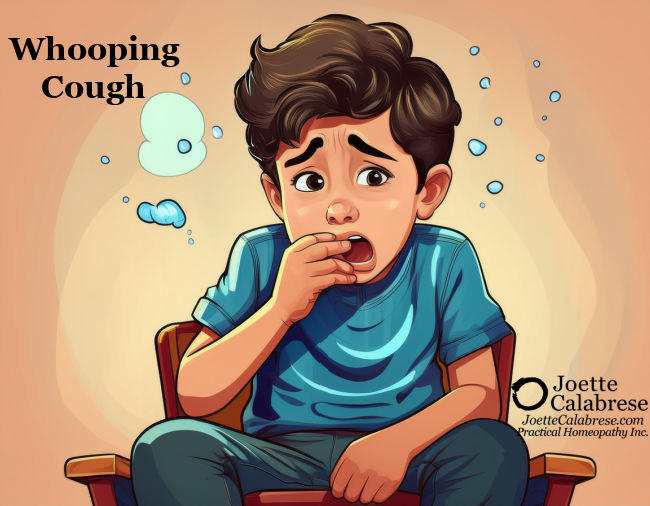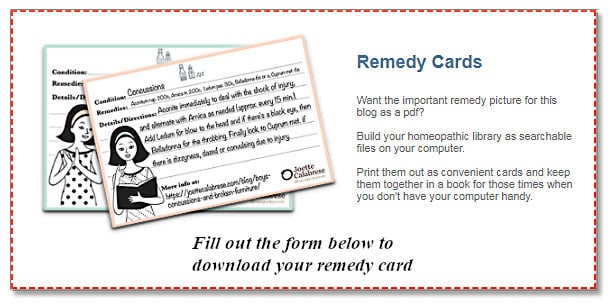Cough, Cough, Cough.
That’s the title of my Monday Night Live event from January 29, 2024. In it, I mentioned whooping cough (also known as pertussis). Even though I’ve touched on this particular condition in previous blogs (as part of posts on homeopathic medicines appropriate for various coughing conditions), judging by the response to my reference, whooping cough deserves a blog post of its own.
Since there’s no time like the present … let’s do it!
Coughs come in all shapes and sizes. Some are caused by viruses (like croup), some by bacteria (like pertussis), and some, of course, by extrinsic triggers (like smoke inhalation). Often, there is no immediate diagnosis, especially at the onset of the condition. More often than not, determining which type of cough is presenting is left to a doctor’s clinical experience or, more importantly, a parent’s familiarity.
Don’t forget what Dr. Robert Mendelsohn said, “When it comes to treating a sick child, one grandmother is worth two pediatricians.”
Moms will recognize many coughs by the sound they make and, thereby, be well-equipped to choose the most tightly fitting homeopathic medicine to address them.
Whooping Cough Symptoms
In and of itself, whooping cough is not generally dangerous. It’s most threatening in individuals who don’t yet have the wherewithal to physically cough up the phlegm collecting in the lungs — children under a year old.
Let me emphasize again that this is generally speaking. Getting in the car is dangerous. Catching a cold could lead to a dangerous form of pneumonia. “Danger” is relative, my friends. That’s the advantage of our being empowered by the health autonomy provided by Practical Homeopathy®.
With education, we have the ability to meet potential dangers head-on.
Pertussis can feel relentless. They don’t call it the 100-day-cough for nothing! It can be a disconcerting sound. However, to add to the confusion, there isn’t always a whoop!
There are dry, wheezing coughs, which can also be considered something of an asthmatic cough.
A barking cough — picture a seal clapping its flippers and barking — is croup. It’s more of a bass sound as the cough is expelled.
Whooping cough, however, is distinguishable by its unique sound of a whoop at the end of the coughing spasm as the sufferer takes their next breath. It’s a violent contraction of the lungs as they intake air.
Let me tell you, my friends, it wasn’t easy to find the sound of whooping cough without it being accompanied by conventional medical advice. But undaunted, I finally found one. Listen here.
It's often worse at night. Often, if it's a child (and they’re the ones most prone), they play, eat normally, and everything is fine during the day. So, the mother naturally thinks, “Oh, ok. Well, last night was horrible. But look at Junior now! He’s fine.” Then, that night, little Junior whoops the night through. He whoops it up, you might say.
Homeopathic Medicines for Whooping Cough
Over the last two centuries, homeopaths have historically recognized Drosera 30 as the remedy for this cough — across the board. Drosera is a great medicine, and I often teach my readers, listeners and students about its use in these cases.
There’s also Bryonia and Pertussinum, not to mention many others.
But then the doctors Banerji came along, and they had a different approach. Their protocol for whooping cough is Ipecacuanha (Ipecac) 30 mixed with Cuprum metallicum 6, as often as every 3 hours, according to severity.
(If you’re new to this paradigm, “mixed with” means one dose of pillules from each medicine is combined in the mouth.)
As I always say, in homeopathy, there is more than one way to knit a sweater. I’ve named three medicines that are recognized for use in cases of whooping cough. Drosera 30 or Ipecac 30 mixed with Cuprum 6.
How does one choose? Well, who can argue with the clinical success of the Banerjis? However, if after researching Drosera in a materia medica, you find it to be a tighter-fitting remedy for the cough in question, then, by all means, it’s a legitimate choice. The decision belongs to you. I am merely your teacher.
If one is inexperienced or doesn’t quite know which kind of cough is developing, my go-to Banerji Protocol for quick-onset respiratory illnesses is Aconitum napellus 200 mixed with Bryonia alba 30, every three hours according to the rapidity of the condition’s development.
There are choices, my friends. But these are a good place to start.
“Whoop it up” no more, and pass on the good news of Practical Homeopathy®!
Warmly,
P.S. I cover coughs and many other conditions in my course, The Antibiotic Alternative: Balance Your Bugs Without the Drugs. In fact, I’m looking at the provided time stamps for that video course right now, and I see over 300 conditions listed — along with their associated homeopathic medicines.
If you want to raise your children as I did, without drugs and endless visits to the pediatrician, The Antibiotic Alternative is the course for you. Learn how to care for your family with guts, spunk, moxie and Practical Homeopathy™.
Remember — all my Mighties (Joette’s Mighty Members) qualify for a 10% discount on course purchases.







My sister is currently nursing her 4 month child through whooping cough. She says baby is barely strong enough to cough anything out. I overnighted all the above mentioned remedies, plus Antimonium tart, to her except the Pertussinum. What potency and frequency would one give Pertussinum?
I can’t offer specific information for this case but most homeopaths when they employ nosodes, more often than not use 200C.
the aconitum bryonia works! thank you so much.
Delighted!
Terri, do you mind my asking if you used the 200c? Thank you!
A few years ago, I had the most astounding experience when I used a remedy for whooping cough. I used two liquids from Pekana, a German company. They include several medicines in each bottle. The day after I took the remedies, I realized my cough was gone. This confirms your teachings about using the medicines. You do not have to take one medicine at a time, although often it works. A combination is sometimes more effective. The “new” homeopathy, or as yours is called “Practical” homeopathy, has to be recognized. It brings to mind the importance of your courses, such as your “Survival” course. We are learning more and more all the time. Thanks for being you, and your efforts.
Susan, could you say what products those were from Pekana? Thank you!
If four family members are whooping on the intake breath but one kid just sounds, how do I say, mucus-y, (no whoop) is it inappropriate to dose all with the whooping cough protocol since we all likely have the same condition or do I need to look for a different protocol for the “different” child? Thanks!
I teach how to use homeopathic medicines based on the condition and presenting symptoms.
This is the 1st step.
How long should you give a remedy before moving on? I don’t see the part of whooping cough that makes the child puke from the intensity of coughing.. should I look for a different remedy all together? We’ve been trying the protocol since Thursday and just IPec. Before for over a week.
When its indicated that the medicine has either not acted or is no longer acting.